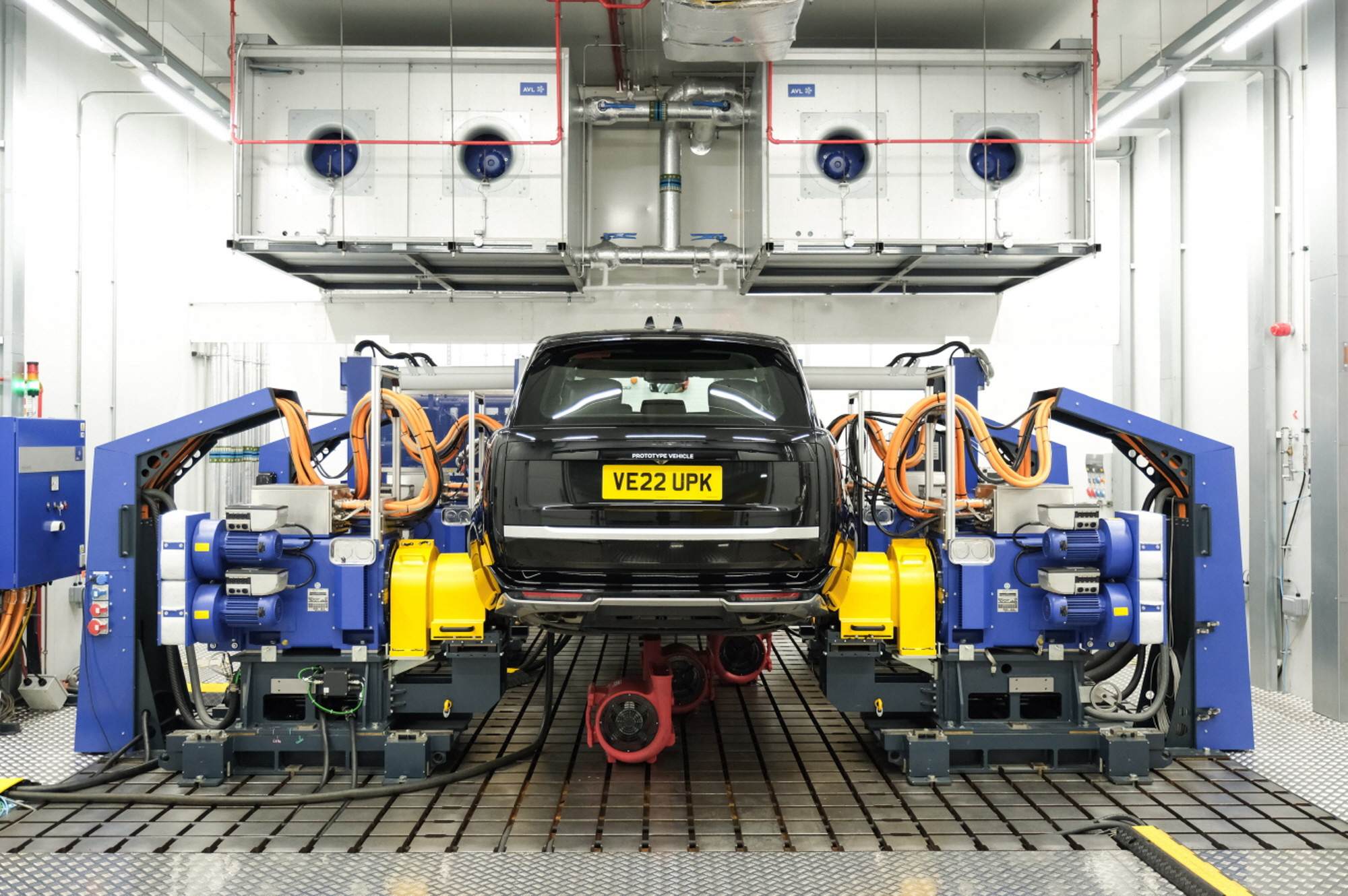
JLR Korea has announced the unveiling of the Future Energy Research Institute, a cutting-edge electric vehicle testing facility worth approximately 420 billion won (250 million pounds), accelerating its transition to electrification with the goal of launching nine fully electric luxury models by 2030.
Located at JLR’s Whitley Engineering Center in Coventry, UK, this newly established facility spans about 30,000 m2 and is set to introduce over 66 billion won worth of technological innovations, including electric testing equipment, electric powertrain manufacturing, and testing cells for electric vehicle systems to enable rapid testing of electric vehicles. Among its features is a harsh artificial climate chamber capable of simulating extreme conditions ranging from -40°C to 55°C.
The Future Energy Research Institute, established in line with JLR’s plan to invest approximately 25 trillion won (15 billion pounds) over the next five years to electrify its four luxury brands, is expected to significantly enhance JLR’s testing and development capabilities. This will allow JLR to continuously expand its next-generation electric vehicle offerings while minimizing the inconvenience of moving to external global testing facilities during the development process. The enhanced capability to test electric vehicles on-site will also help reduce the costs and carbon emissions associated with transporting prototype vehicles worldwide for testing.
More than 200 electric vehicle experts are already working at the facility, and it is anticipated to create an additional 150 jobs, greatly contributing to the local economy. To upgrade the Coventry site, JLR plans to invest an additional 37 billion won next year.
Thomas Müller, JLR’s Senior Director of Product Engineering, stated, “JLR vehicles are at the forefront of the pure electric vehicle future and will remain so. This facility, a core element of our Reimagine strategy, provides the latest testing capabilities that are essential to the performance and reliability of the modern luxury vehicles we are proudly developing.”

JLR’s next electric vehicle, the modern luxury all-electric Range Rover model, is one of the models undergoing extensive testing at this facility, with engineers working at Whitley involved in the design, development, and testing of the EDU. This model is set for a global launch next year.
The Future Energy Research Institute has become yet another milestone in JLR’s Reimagine strategy towards electrification. By conducting its own EDU design and development, JLR is expected to enhance its management and oversight of its supply chain, gaining the ability to more flexibly modify its proprietary EDU.
Meanwhile, JLR is ramping up investments in electric vehicle production facilities. The state-of-the-art factory located in Nitra, Slovakia, plans to commence electric vehicle production from 2030. This year marks the fifth anniversary of the Nitra factory, which has manufactured over 365,000 Defender and Discovery models to date since its inception.
JLR established the Nitra factory in 2018 with an investment of approximately 1.8 trillion won (1.3 billion euros), featuring KUKA’s pulse carrier system that boasts a 30% faster transmission time than existing systems, becoming the first of its kind in Europe. Additional investments of about 86 billion won have since been made in new technology, land, buildings, and software.
Additionally, the Halewood factory in the UK will become JLR’s first dedicated production facility for pure electric vehicles, while the Solihull plant is preparing for the production of pure electric Range Rover, Range Rover Sport, and Jaguar models. The engine manufacturing center in Wolverhampton is set to become a base for EDU production, and the Castle Bromwich plant will be converted for electric vehicle bodywork.

Lee Sang-jin daedusj@autodiary.kr

